
Ensuring your toddler gets all the nutrients for healthy growth and development, can be a real task for many parents. Toddlers can be quite picky about either the variety of food or the way you present it to them. Have you started feeding meat to your toddler? Do you know when can toddlers eat meat?
Toddlers can eat meat if the family eats meat. If the toddler belongs to a vegetarian family that does not eat any meat, there is no compulsion to feed meat to the toddler. Be it cultural, traditional, or religious reasons, you can avoid meat if you want to. If you are planning to give your toddler meat, you should know when, how, and how frequently. Read on to learn all about meat for toddlers.
In This Article
- Video Of Essential Meat Guide For Toddler Nutrition
- How to Prepare Meat For Your Toddler?
- What Are the Benefits of Meat For Toddlers?
- Can Toddlers be Allergic to Meat?
- Are There Any Side Effects of Meat For Toddlers?
- Is Meat a Choking Hazard For Toddlers?
- FAQ’s
Video Of Essential Meat Guide For Toddler Nutrition
How to Prepare Meat For Your Toddler?
The first and foremost detail to pay attention to is the way you prepare the meat for your toddler. Irrespective of what meat you give your toddler, you need to pay close attention to the way you prepare it (1).
1. Cook Well

Ensure you clean the meat thoroughly and cook it well for toddlers. Rare or medium rare meats are not safe for toddler consumption as they can carry dangerous bacteria.
2. Size
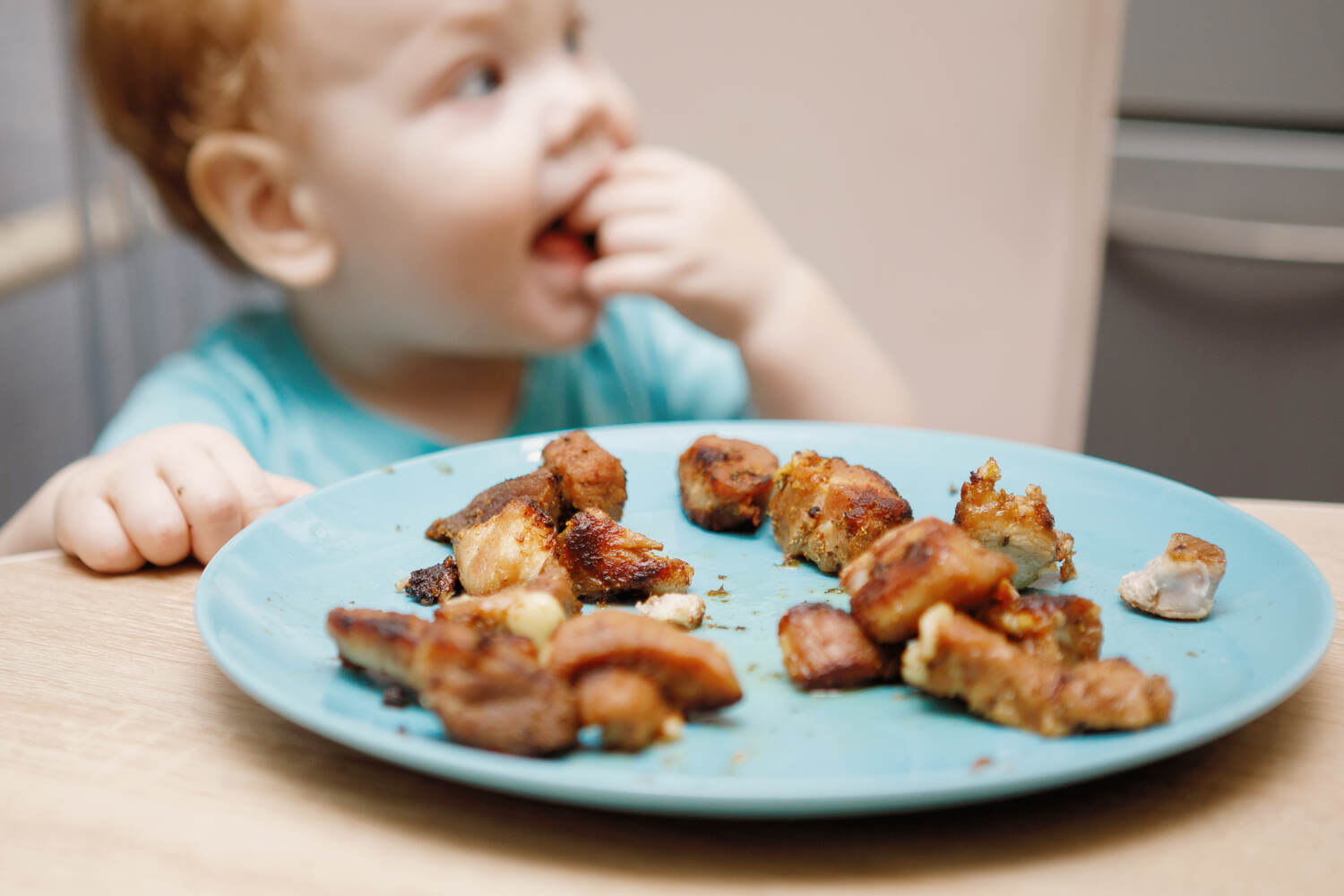
Cut the meat into small pieces so that a toddler can handle it. It should be small enough for them to easily chew but big enough for them to handle it with hands or cutlery.
3. Flavor
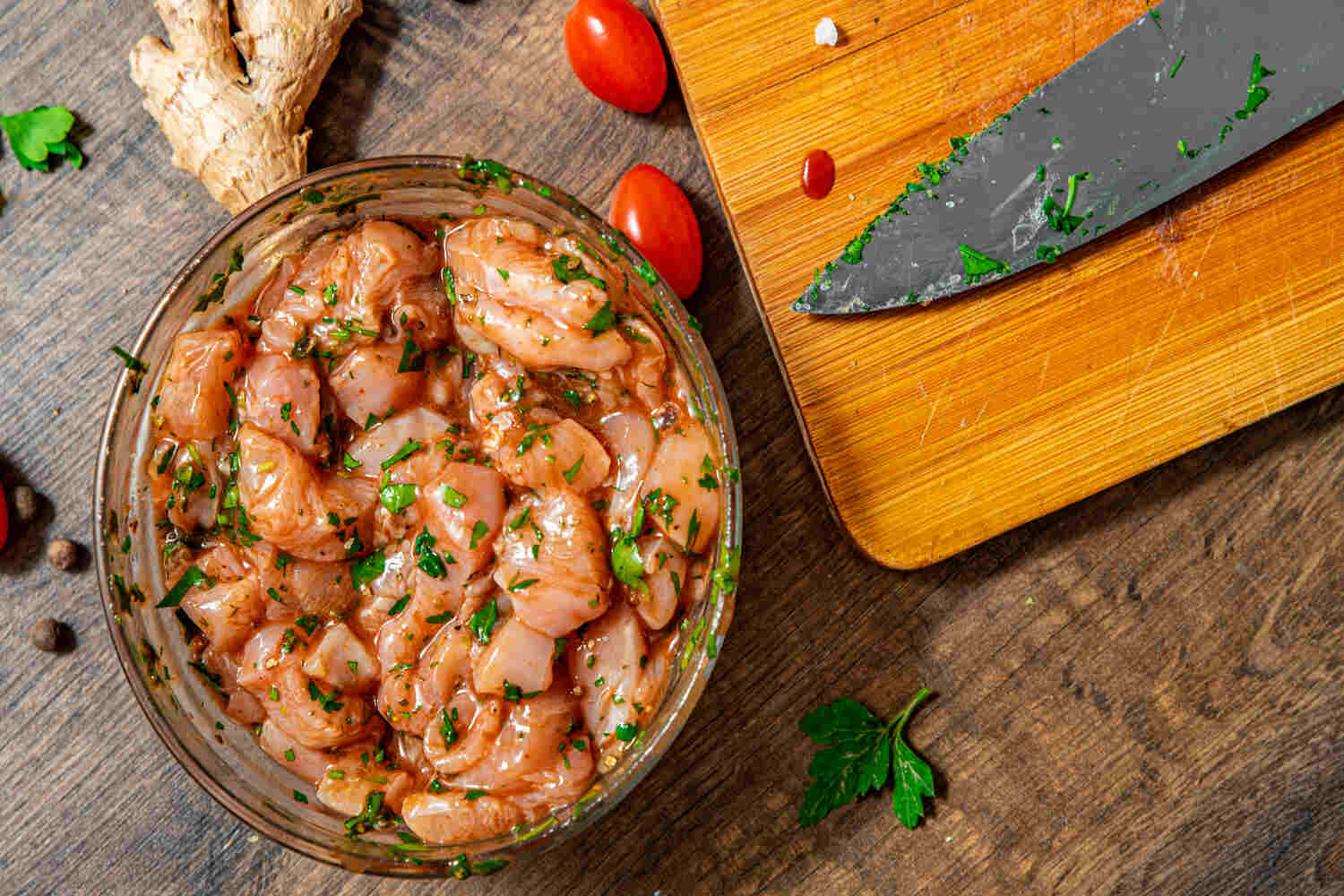
You can add some sauce or marinate the meat before cooking. Just remember toddlers don’t need as much salt as adults. You can keep a portion of the dish aside for the toddler, before adding more salt to it.
4. Storage
Freeze the leftover meat right away to prevent bacteria from forming. Ensure you store, cut, and cook different meats separately. Mixing meats is not safe.
What Are the Benefits of Meat For Toddlers?
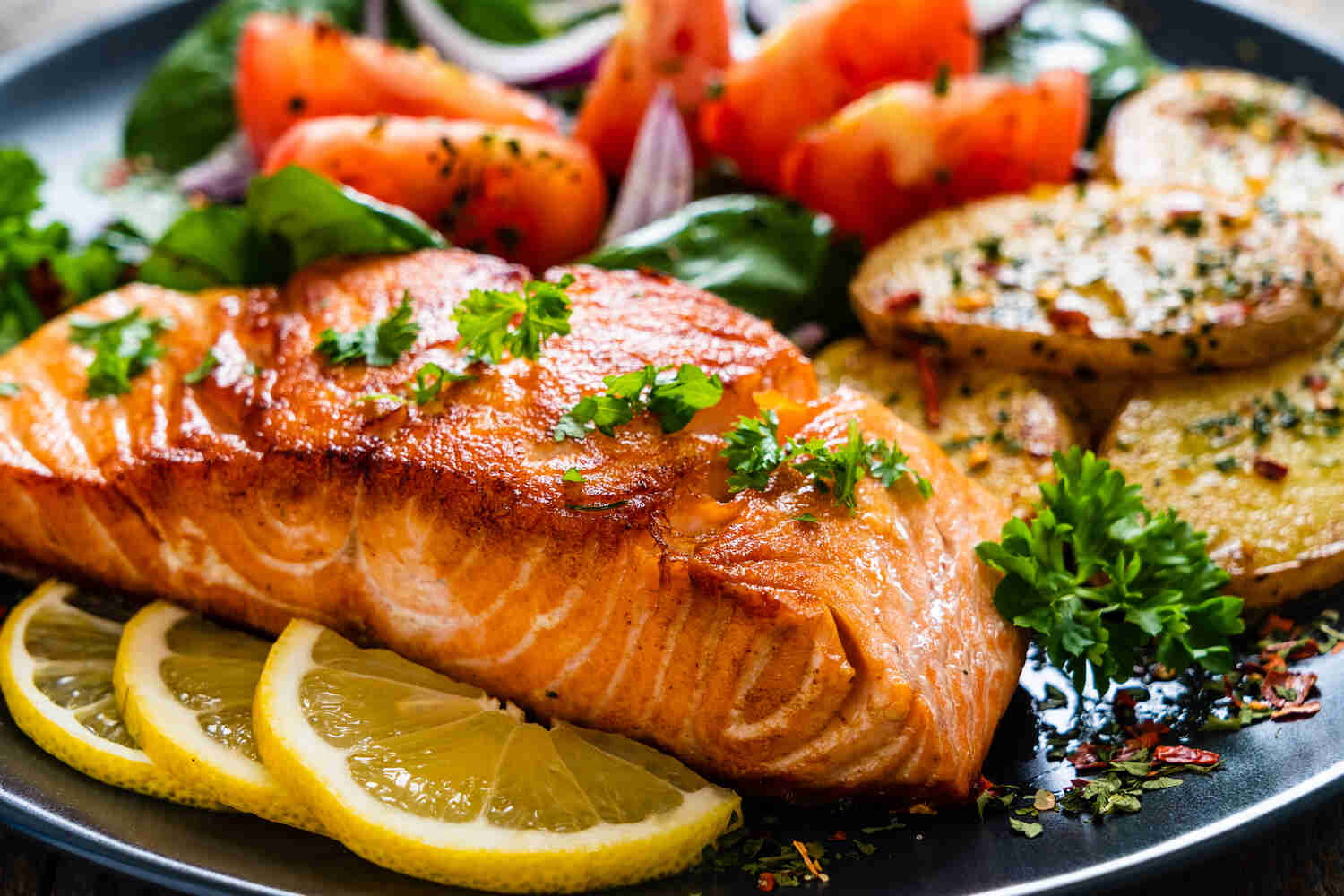
According to WHO, meat provides more essential micronutrients than plants for kids, which they can easily absorb (2). Giving your toddler meat from time to time or as a part of their regular diet can be beneficial in the following ways –
- Provides bioavailable essential micronutrients
- It’s easier to get more nutrients from meat than from plant sources
- Reduces the risk of stunting or other growth impairments
- Aids in the cognitive development of toddlers
- Makes toddlers less susceptible to chronic illnesses
- Getting the daily requirement of nutrients from plant sources can be expensive when compared to meat sources
Can Toddlers be Allergic to Meat?
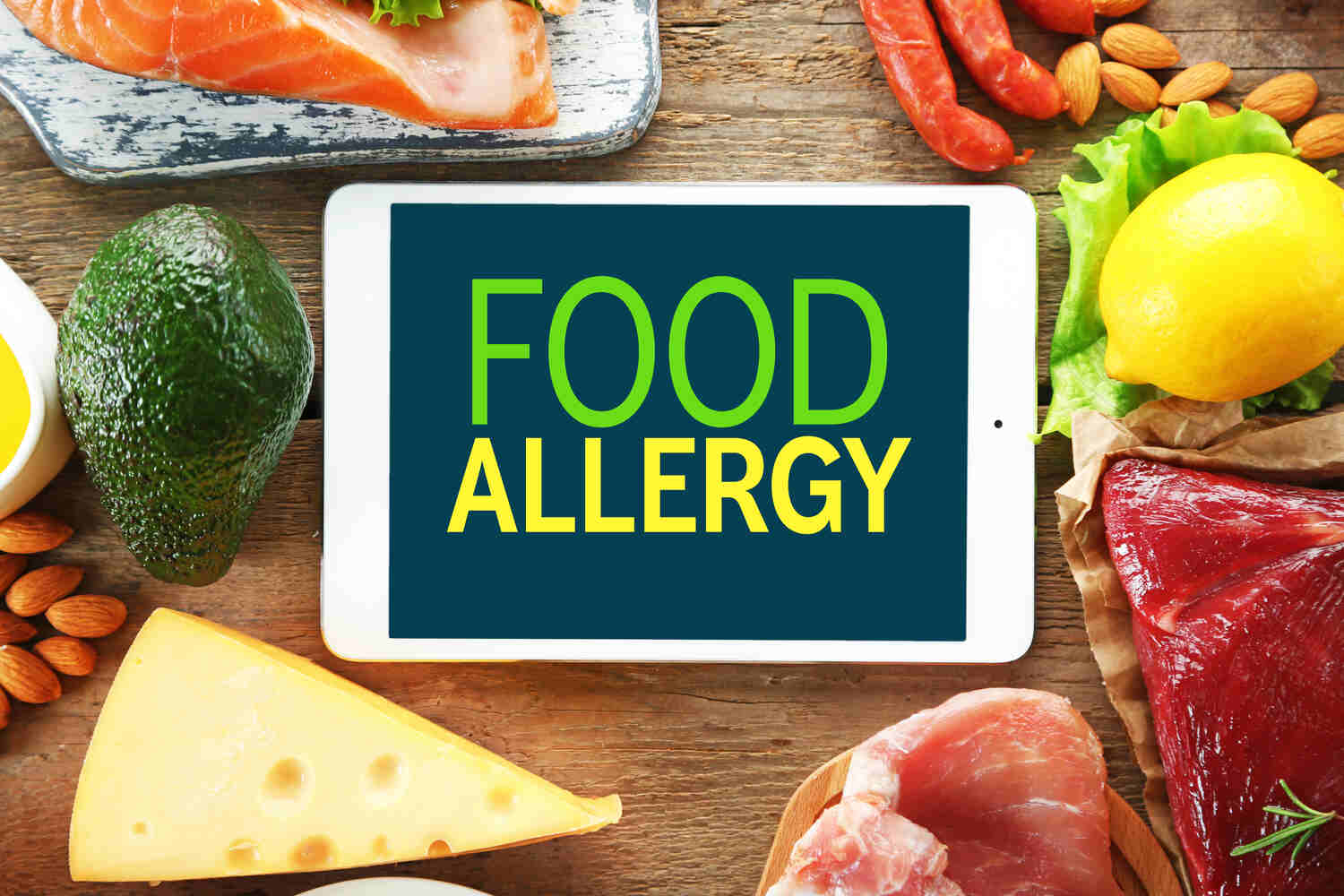
Yes, toddlers can be allergic to meat. Many adults are also allergic to different types of meat. A food allergy, including a meat allergy, can develop at any age (3a). So, a kid who was not allergic to meat initially, can develop an allergy after a few months or years.
In many cases, kids who are allergic to milk and milk products can develop an allergy to beef (3b). To confirm if your toddler is allergic to certain types or all meat varieties, you need to take an allergy test. An allergist can help you identify what types of meat to avoid for your toddler.
If your toddler is refusing to eat meat, it could be for one of the following reasons too-
1. Taste
We all have taste preferences. It is a common misconception that if you give something flavorful to a toddler, they will eat it as they don’t have much exposure to food varieties. On the contrary, toddlers develop taste preferences and tend to like and dislike foods due to their taste. It may take a few tries to even make a toddler try a new food item. You need to be patient and encourage the toddler.
2. Texture
Just like the taste, your toddler might not like the texture of the meat. Different meats have different textures. This could be why your toddler prefers certain meats over others. The way you prepare the meat can also impact the texture. While some toddlers like to chew, some may not like to chew meat pieces.
3. Sensorial Issues
Food involves the senses of smell, taste, and sight. If your toddler does not like the way something looks, feels, or tastes, they might have some sensorial issues. Most toddlers may need just a little more time for their sensorial development. You can attempt to give them meat after a few months.
4. Too Much Pressure
Avoid any type of pressure – positive or negative. Threatening or scolding your toddler for not eating meat or overly appreciating them for eating meat, are all pressure. Too much pressure can make the food unappealing.
[Read : Milk Alternatives For Your Toddler]
Are There Any Side Effects of Meat For Toddlers?

If your toddler has a meat allergy, they may experience the following side effects soon after eating meat. Toddlers can suffer from most of these side effects if the meat is not fresh or clean-
- Stomach pain/cramps
- Indigestion – vomiting, diarrhea
- Swelling of lips, mouth, or tongue, making it difficult to talk to swallow
- Dizziness
- Wheezing or struggling to breathe (can make them look pale or turn their skin blue)
- Repetitive cough or tightening of the throat
- Rashes or hives (makes them itch)
- In severe allergic cases – anaphylaxis, a life-threatening allergic condition that requires immediate medical attention
Is Meat a Choking Hazard For Toddlers?
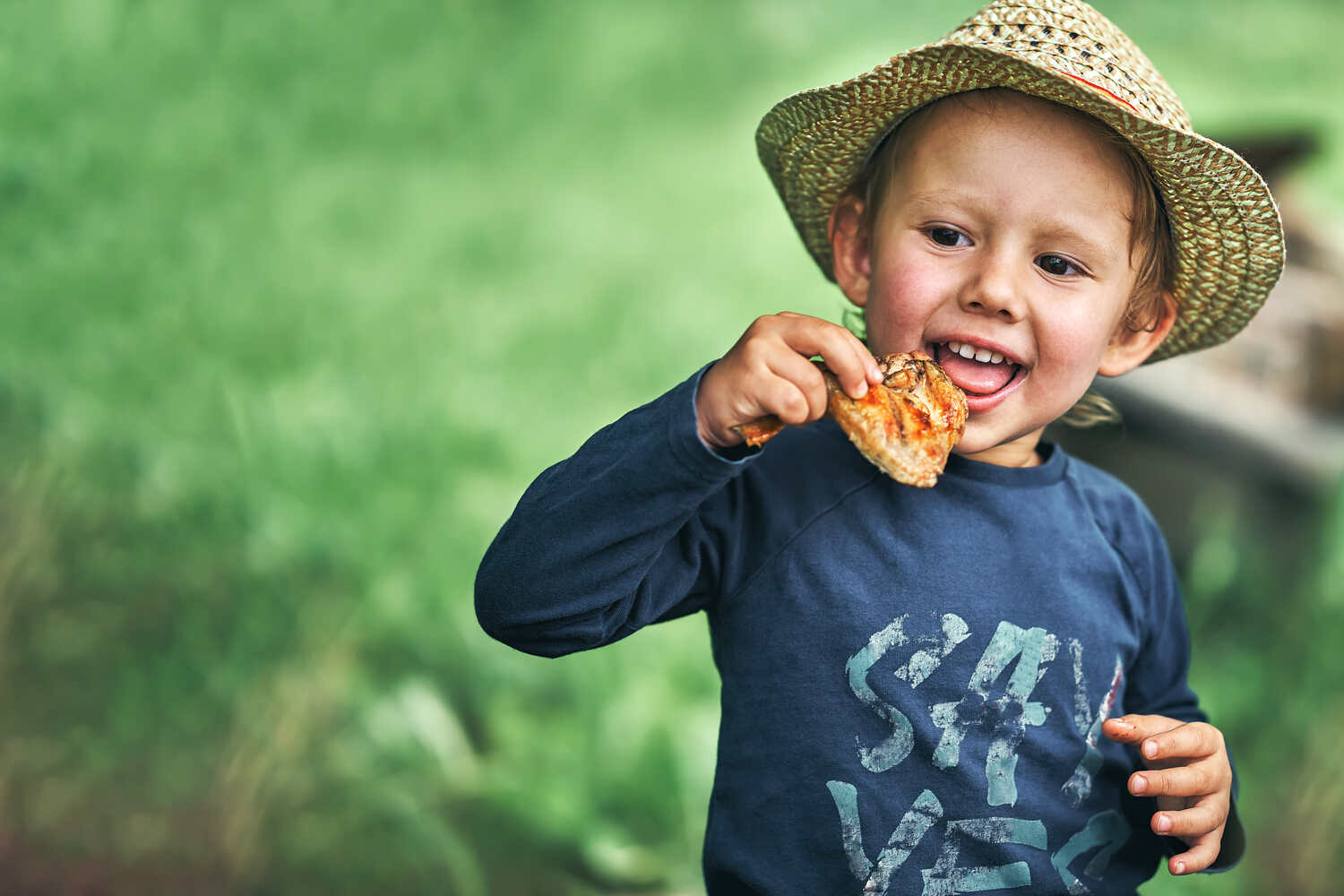
If the meat pieces are too big or dry and chewy, it can lead to choking. Toddlers may not patiently chew the meat well enough. They may try swallowing a big piece after chewing it a few times, which can cause choking.
Cutting meat into strips may look appealing and interesting for toddlers who are picky about the appearance of their food. However, toddlers can bite off a big piece from a strip and struggle to handle it. Always cut the meat into small manageable pieces for your toddler.
While meat contains a lot of nutrients it is not compulsory for toddlers to eat meat. Vegetarians have plenty of plant sources for their nutrients. Sometimes, a toddler can develop an allergy to meat after many years too. If your toddler is allergic or does not want to eat meat, there are plenty of other sources, to get all essential nutrients from. At the end of the day it is important that they eat well.
[Read : A Balanced Diet For Toddlers]
FAQ’s
1. Do Toddlers Need Meat Every Day?
Not necessarily. Many families follow a vegetarian diet and don’t feed meat to toddlers. If your toddler does not eat meat, you can find various other vegetarian sources for the various nutrients meat provides.
2. What Happens if Toddlers Don’t Eat Meat?
Not eating meat will not harm a toddler in any way. The toddler should get the essential nutrients from various other vegetarian sources if they are not eating meat.
3. How to Manage Meat Allergies in Toddlers?
If your toddler is allergic to meat, the best way to manage the allergy is to avoid the trigger. The risks of meat allergy outweigh the nutritional benefits your toddler may derive from its consumption. Always carry doctor-prescribed medications. When you suspect an exposure, give your toddler the medication before the allergic reaction can go out of hand.
Read Also: Benefits Of Including Almonds In Your Child’s Diet
References
- Unicef,Feeding your baby: 1–2 years – [https://www.unicef.org/parenting/food-nutrition/feeding-your-baby-1-2-years]
- The Importance of Meat for Cognitive Development – [https://www.researchgate.net/publication/359124159_The_importance_of_meat_for_cognitive_development]
- Meat Allergy – [https://acaai.org/allergies/allergic-conditions/food/meat/]

